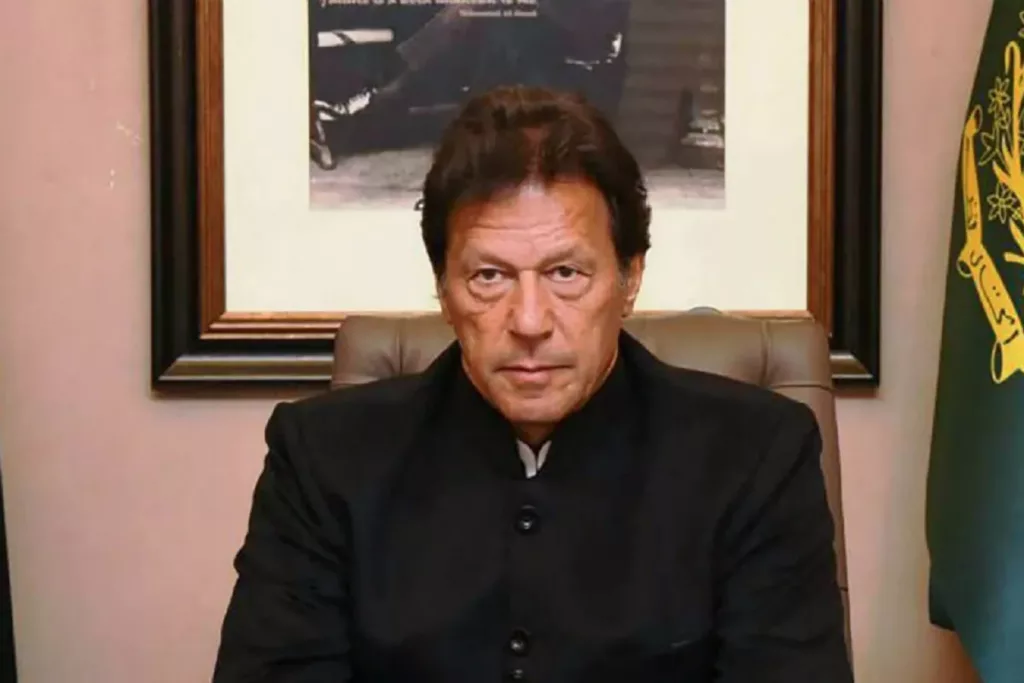With a fractious and divided opposition unable to pose any major challenge to his government, rumors are very much in the air that Prime Minister Imran Khan is preparing to call snap elections, dissolving the National Assembly before the completion of its term.
His propensity to spring a surprise on his opponents every now and then as a cricket captain was legendary. But Khan seems to have carried his cricketing ways over into politics – something that lends credence to the theory.
Most recently, the Prime Minister put himself in the firing line this March when he decided to take the vote of confidence from the National Assembly after his Finance Minister Hafeez Sheikh lost a high profile Senate seat to the opposition candidate.
Under the circumstance, it is not inconceivable to see Khan seek fresh mandate from the public through early general elections. Some crystal gazers of the capital say the PM may announce snap polls as early as the beginning of 2022 to catch the opposition in disarray.
Analysts say if Khan does indeed jump the gun at the federal level, the fate of provincial assemblies may be no different – three of which are controlled by his coalition.
On the other hand, although Khan was successful in securing the vote of confidence from his electoral college, seeking fresh mandate from the public is an entirely different ball game. Observers say the move may prove suicidal given the history that our electorate has never reelect a ruling party.
Something is definitely cooking up behind the scene that has given rise to whispering about early dissolution of assemblies. The question, however, is what has really happened which has encouraged the ruling party, especially the PM, to think on these lines.
One reason may be the PTI’s recent triumphs in Azad Kashmir Legislative Assembly elections and the by-election in Sialkot.
In addition, the PTI is very cocky about the support it enjoys among expatriate Pakistanis. This is also the reason that it has geared up efforts for electoral reforms envisaging not only the use of Electronic Voting Machines (EVMs) but also granting right of vote to overseas Pakistanis.
The government has already passed a bill to this effect from the National Assembly and desires its early approval from the Senate. Khan apparently believes his party will be well positioned to win the next election if the overseas Pakistanis are given the right to vote from abroad.
Some political pundits suggest the government may go for early elections as soon as early next year – allowing just enough time for government to push through electoral reforms and to be seen delivering on its electoral promises.
By the end of this year, work should be well underway on most of the development projects under the PSDP for which PKR 900 billion have been earmarked for the current fiscal year, a healthy forty percent increase from the previous year.
It is to be hoped the PM does not fall victim to wishful thinking. One reality check for him could be gauging his approval rating at the time of snap polls compared with his popularity ahead of the last election. Right now, for instance, the PTI is not as popular as it was before the 2018 elections.
To say the people are greatly disappointed over his three years in government would be an understatement. Those who voted for ‘tabdeeli’ (change) have been disillusioned because it has simply evaporated.
Above all, the soaring prices of essential commodities have given rise to widespread public angered against Khan’s government. Turning this sentiments around in short order is all but impossible – and holding early elections early next year may well prove disastrous for the PTI.
The government, therefore, would be well advised to avoid this trap and focus entirely on fulfilling the promises it made with the public. In the next two years, it must prioritize development projects and strengthen the industrial and agriculture base, which should automatically create jobs and enhance purchasing power. It is only after winning the hearts and minds of the people that the PTI can stand a good chance in the next polls.


